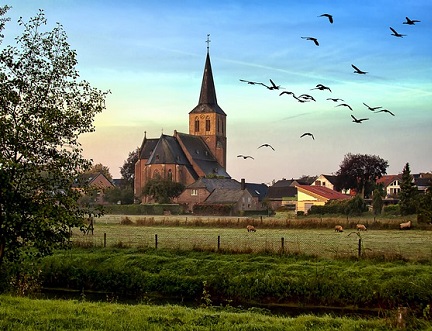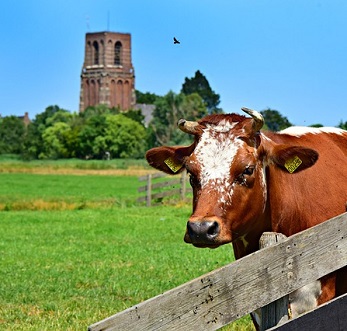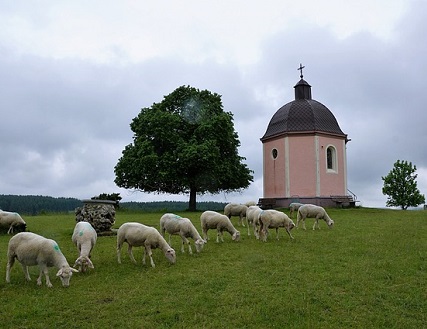News
Stories making wavesPastures Green
CHURGHGOERS CALL FOR MORE 'GREEN AND PLEASANT' FARMING ON CHURCH-OWNED LAND


The Church of England is one of Britain's largest landowners with the Church Commissioners owning over 85,000 acres of agricultural land, and 75,000 acres of Glebe land owned by dioceses, much of which is also agricultural. According to a new study, whose preliminary findings were shared today (23rd February 2024), a clear majority of churchgoers believe that tenant farmers on this land, should adopt organic or regenerative practices and be more animal-friendly, rearing livestock using 'free range' systems.
A survey, of 605 regular church goers, statistically representative of UK church attendance by denomination, age and gender, was undertaken in January and early February 2024, as part of a wider study on food, farming and environmental stewardship, for the charity Green Christian. Whilst the full study results will be released later this year, the advance findings were released ahead of a planned debate on Land and Nature at the Church of England's General Synod this coming weekend.
The Land and Nature Motion will seek to give biodiversity equal consideration with net zero carbon, recognising the need to respond urgently to the ecological crisis. It addresses land and property owned by the Church, at parish, diocese and national level and Dioceses would be encouraged to develop a Land action plan. The Green Christian survey findings support an amendment requesting that the Church Commissioners report back on their progress of engagement and collaboration with tenants about sustainable farming.
Over 57% of respondents of the survey indicated that tenant farmers on church land should be either 'required' or 'encouraged' to adopt organic or regenerative practices and rear their livestock using 'free range' systems. By comparison, a mere 18% said they should have complete freedom to choose their preferred farming practices. Respondents attending Church of England churches were slightly more inclined to favour stricter guidelines: only 13% thought that its tenant farmers should be free to choose their farming practices.
Professor Tim Cooper, who led the survey and is a co-founder and trustee of Green Christian, said: "Our survey provides clear evidence that churchgoers want the substantial agricultural assets owned by the Church of England to be farmed according to organic or regenerative practices and for its tenant farmers to rear their livestock on 'free range' principles.
While recent reports suggest there's been some progress in promoting sustainable farming, this needs to be accelerated and accompanied by efforts to ensure that factory farming does not occur on church land. The Church should be leading by example, not following cultural trends."
